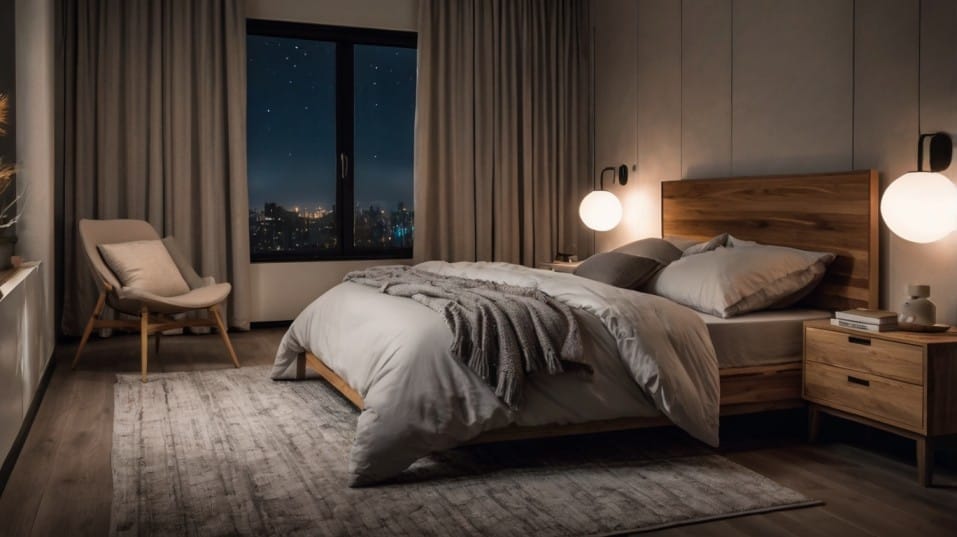Sleep and Productivity: Why They Rise and Fall Together
Boost your energy, focus, and performance with simple sleep strategies backed by science. Better sleep starts tonight—here’s how to win.

What if your productivity problems aren’t about motivation—but about your mattress? Sleep isn’t a reward you earn after a long day. It’s the fuel that powers clear thinking, sharp decisions, and real momentum.
Every shortcut you take at night shows up in the daylight as mental fog, missed focus, and drained willpower. If you want to level up how you perform, it’s time to get strategic about how you rest.
Sleep Isn’t Just Rest. It’s Performance Fuel.
Let’s kill the myth: sleep isn’t a luxury, it’s a biological upgrade. While you’re sleeping, your brain is on double duty.
It’s consolidating memories, clearing out waste proteins, recalibrating your mood, and rebuilding cognitive connections. If you skip that maintenance window, you don’t wake up at zero—you wake up at a deficit.
Studies from institutions like Stanford, Harvard, and the NIH consistently show the same outcome: people who sleep well don’t just feel better—they perform better.
Tasks that require focus, memory, decision-making, or coordination are directly tied to how rested your brain is. These aren’t minor bumps. We’re talking 20–30% improvements in speed and accuracy after just one solid night of rest.
In plain terms: sleep is the difference between grinding through your day and actually owning it.

The Real-World Gains from Better Sleep
Let’s talk about what really matters—how this shows up in your life. Not in lab conditions, not in some abstract future. Today.
Sharper focus
Sleep is your brain’s way of clearing mental clutter. You know that sensation of sitting down to work and instantly locking in?
That’s what happens when your prefrontal cortex isn’t bogged down by fatigue. You don’t have to fight to concentrate. You’re just... in it.
More efficient decision-making
Whether you’re running a business or just trying to stay on top of your schedule, sleep directly affects your judgment. One well-rested brain processes nuance, risk, and timing better than a tired one with a triple shot of espresso.
Creativity on tap
Ever noticed how solutions seem to appear after a good night’s sleep? That’s REM in action.
During REM, your brain connects the dots between seemingly unrelated pieces of information. The result? Better ideas, more insight, and less time staring at a blank screen.
Resilience and recovery
Mental stamina isn't just about willpower—it’s about capacity.
Without enough deep sleep, your stress response stays elevated, and it’s harder to stay calm under pressure. With proper rest, you bounce back faster, stay centered, and keep your edge.
Build a Sleep Setup That Works With Your Life
Here’s where most people screw it up: they treat sleep like a switch instead of a system. Your body isn’t waiting for you to crash. It’s following a rhythm. Master that rhythm, and sleep becomes automatic.
Start with your anchor points
Wake-up and wind-down. Set your wake-up time first. Make it realistic, not idealistic. Then work backward to find your target bedtime.
Consistency matters more than the number on the clock. Whether you're a night owl or early riser, the key is locking it in.
Light and temperature are non-negotiable
Your brain reads light as a signal. Blue and bright light say “stay awake.” Dim and warm light say “shut it down.”
So in the last hour before bed, switch to low, indirect lighting. Kill the screens, or at least put on a solid blue-light filter. Better yet, swap the phone for a book that doesn’t fire you up. Your room should be cool.
Around 65–68°F (18–20°C) is the sweet spot. Cooler temps trigger melatonin production and help your body drift into deep, restorative sleep faster. If you're overheating or under heavy blankets, you're fighting against your biology.
Own the pre-sleep hour
This is your transition window. No emails. No doom-scrolling. Your goal is to signal safety and slowness. Stretch, journal, read, take a warm shower—whatever helps you downshift. It doesn’t have to be perfect. It just has to be consistent.
Caffeine and alcohol? Time it right.
You don’t need to quit. Just cut caffeine by early afternoon and avoid drinking close to bed.
Alcohol messes with REM and fragments your sleep, even if it helps you fall asleep faster. If you’re going to drink, cut it off a few hours before bed and rehydrate.
Bonus: Your Mornings Stop Feeling Like War
Here’s what nobody tells you: getting good sleep doesn’t just make nights better. It makes mornings automatic.
That foggy, sluggish, “why did I agree to this 8am call?” version of you fades fast when your brain isn’t in recovery mode from a trash night.
Waking up well-rested means fewer cravings, better glucose control, and more natural energy—no hacks required. It also means you can actually use those first hours of the day productively, when your brain is fresh and alert.
The mental clarity you get from great sleep often replaces the need for that second (or third) coffee. You’ll find yourself thinking ahead instead of catching up. Acting with intent instead of reacting to every notification.
Final Thoughts
Here’s the truth: productivity doesn’t start with planners or time blocks. It starts with sleep. High-level performance is built overnight. Literally.
You don’t need to overhaul your life or buy a fancy tracker to start seeing results. Just lock in a wake-up time, dim the lights an hour before bed, and create a wind-down ritual that calms your brain.
Give it a week. See what happens. Want more focus, more flow, and more wins? Start with better sleep. Start tonight.




